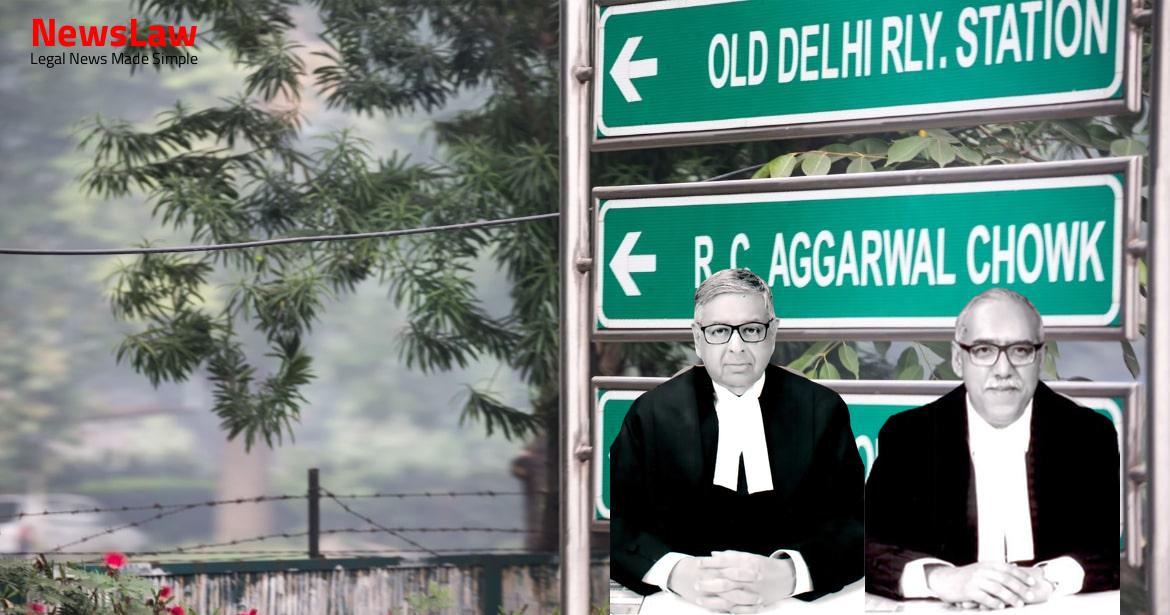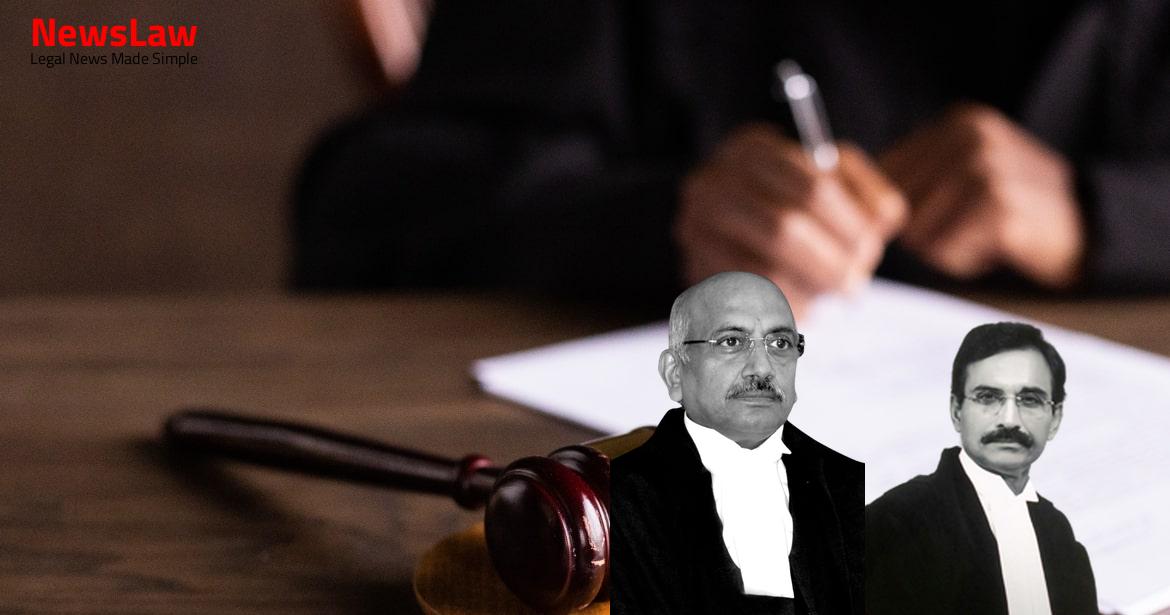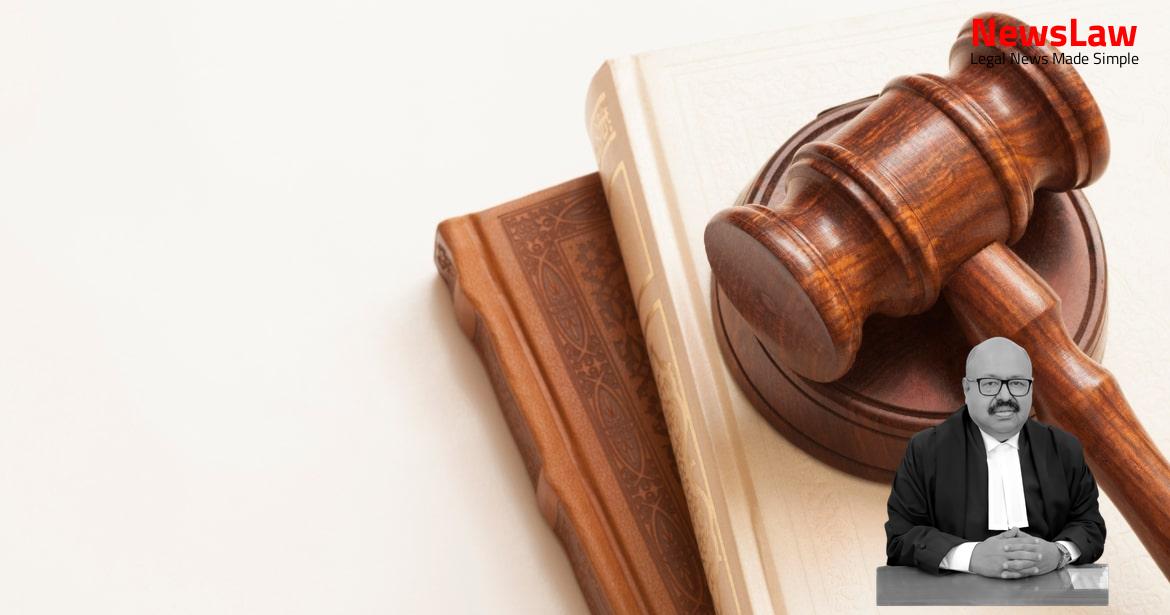In a significant legal case, the Supreme Court of India has delivered a judgment regarding the jurisdiction of the Gujarat Public Works Contract Disputes Arbitration Tribunal for interim orders. The case involves a dispute between the State of Gujarat and a contractor. The Tribunal’s powers to grant interim relief under the Arbitration and Conciliation Act, 1996 were under scrutiny in this case. Let’s delve into the details of this landmark judgment and its impact on arbitration proceedings in India.
Issue
- The main issue in these appeals is whether the Gujarat Public Works Contract Disputes Arbitration Tribunal has jurisdiction to make interim orders under Section 17 of the Arbitration and Conciliation Act, 1996.
- The Gujarat Act was enacted to refer disputes arising from works contracts by the State Government or Public Works Contracts to the Tribunal.
Also Read: Interpretation of Pre-deposit Requirement under SARFAESI Act
Arguments
- The petitioner argues that the respondent contractor should have approached the State Tribunal for a remedy under the Gujarat Act instead of seeking relief from the writ court.
- The petitioner questions the correctness of the view laid down in Gangotri Enterprises Limited vs Union of India, which the respondent relies upon.
- The State of Gujarat, represented by Shri Preetesh Kapoor, asserts that the High Court does not have jurisdiction to issue the order granting relief to the contractor.
- Shri. K. G. Sukhwani, representing the respondent, argues that the Tribunal under the Gujarat Act does not have jurisdiction to grant the relief sought.
- He refers to a previous order of the State Tribunal which stated that the Tribunal can only exercise powers provided by the Gujarat Act.
- The State Tribunal also ruled that if the Gujarat Act does not explicitly empower the Tribunal to grant injunctions, it cannot resort to the Code of Civil Procedure for interim relief.
Also Read: Inquiry and Cooperation: NCPCR vs. WBCPCR Judgment
Analysis
- The Court has the power under Section 41(b) to injunct the appellant from recovering damages claimed by the contractor.
- The A&C Act provisions apply to arbitrations in India, with exceptions for special enactments prevailing.
- Interim injunctions can be issued by the Tribunal under Section 8(3) of the Gujarat Act.
- Revisional powers for awards are with the High Court under Section 12 of the Gujarat Act.
- The contractor completed work on a National Highway section per the contract but faced issues of withheld payments by the State.
- Previous judgments influenced the High Court’s decision to stop the State from unilaterally recovering amounts from ongoing contracts of the contractor.
- The Court’s interim injunction was deemed appropriate given the contractual terms and the State’s actions.
- The overruled judgment in another case clarified that the State cannot recover disputed amounts from other contracts of the contractor.
- The Gujarat Act specifies the Tribunal’s powers and limits Civil Courts’ interference in arbitration awards.
- Challenges to State communications seeking recovery from contractors’ other contracts are addressed by the High Court in Gujarat.
- Section 2(e)(i) of the A&C Act defines ‘Court’ for disputes other than international commercial arbitration.
- Section 2(2) states that Part I of the A&C Act applies to all arbitrations in India.
- Section 9 of the A&C Act empowers the Court to grant interim measures.
- Section 17 allows the arbitral tribunal to grant interim measures.
- Section 8 mandates arbitration under the Act for any dispute between parties.
- Section 13 bars the jurisdiction of Civil Courts in matters covered by the Tribunal.
- The order of interim injunction in Gangotri Enterprises case did not direct the appellant to pay amounts due under other contracts.
- The order was considered a negative injunction as it did not explicitly or impliedly require payment to the respondent.
- The Government was held to have no right to appropriate the claimed amount without prior adjudication.
- Disagreement with the findings in the Raman Iron Foundry case where the Government was entitled to recover damages by appropriating sums due under other pending bills.
- Arbitral Tribunal under the Gujarat Act can exercise powers vested in Section 17 of the A&C Act.
- No inconsistency between the two Acts regarding grant of interim relief.
- The power under the Gujarat Act already encompasses interim relief provision, making Section 17 of A&C Act complementary.
- The provisions of Section 17 of the A&C Act are not inconsistent with the Gujarat Act.
- Appeals filed by the State of Gujarat allowed, and High Court judgments set aside as they are per incuriam.
Also Read: Prabhakar Tewari vs Vikram Singh and Malkhan Singh
Decision
- The contractor(s) have the liberty to approach the Gujarat Public Works Contract Disputes Arbitration Tribunal.
- If approached within 2 months, the Tribunal will not dismiss the claim based on limitation.
- Pending applications will be disposed of and the Tribunal will decide on the merits of the case.
Case Title: THE STATE OF GUJARAT THROUGH CHIEF SECRETARY Vs. AMBER BUILDERS (2020 INSC 16)
Case Number: C.A. No.-008307-008307 / 2019



